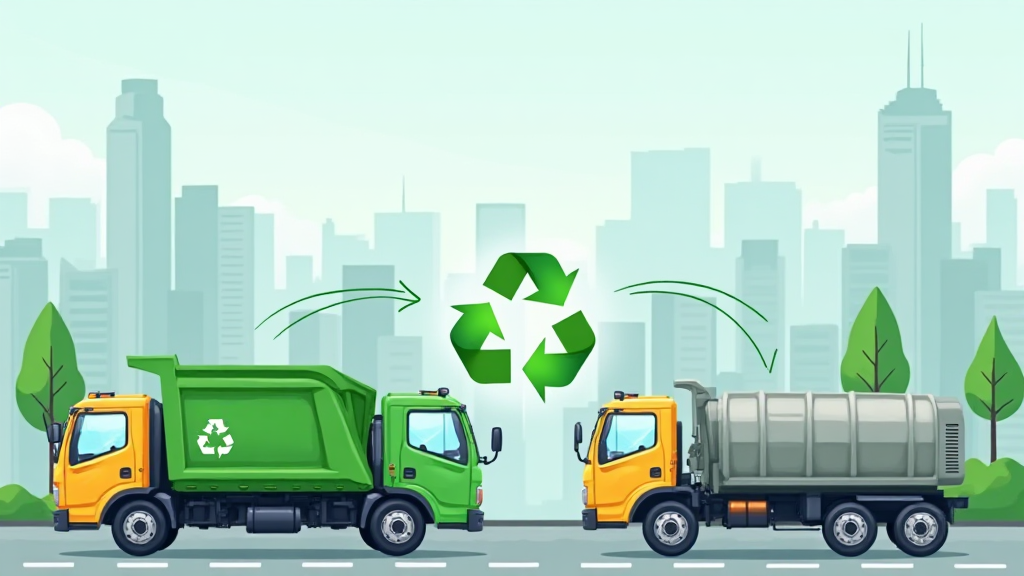Revolutionizing Waste Management in Vietnam with HIBT and Cryptocurrency
In recent years, Vietnam has emerged as one of the fastest-growing economies in Southeast Asia. With a rapidly increasing urban population — projected to reach over 50% by 2025 — the urgent challenge of waste management has taken center stage. With an estimated 15 million tons of waste generated annually, Vietnam is looking for sustainable and innovative solutions to address its pollution and waste challenges. One such solution on the horizon is the integration of cryptocurrency and blockchain technology into waste management, spearheaded by companies like HIBT. This article explores how HIBT Vietnam is utilizing cryptocurrency for effective waste management and why it could be a game-changer in 2025.
Understanding HIBT’s Role in Vietnam’s Waste Management
HIBT, or the Hệ Thống Thông Tin Quản Lý Chất Thải Việt Nam, is a pioneering organization in Vietnam focusing on the integration of blockchain technology in waste management. By leveraging blockchain’s transparency, traceability, and security features, HIBT aims to improve waste collection and disposal services across Vietnamese cities. In doing so, HIBT not only ensures efficiency but also enhances public trust in waste management systems.
The Significance of Blockchain Technology
Blockchain technology provides a decentralized ledger, allowing for secure and transparent transactions. In the context of waste management, this means:

- Enhanced Tracking: Every waste collection truck can be tracked in real-time, reducing the chances of corruption and inefficiency.
- Smart Contracts: Waste management contracts can be automatically executed when specific conditions are met, ensuring compliance.
- Tokenomics: Users could be rewarded with cryptocurrency tokens for recycling or correctly disposing of waste, promoting eco-friendly behavior.
Cryptocurrency’s Investment Potential in Waste Management
Cryptocurrency serves as a conduit for investment in environmental initiatives. Startups like HIBT focus on developing their native tokens for rewarding eco-friendly practices. By 2025, experts predict that investments in green technology, including waste management-driven cryptocurrencies, may reach billions globally.
The Growth of Cryptocurrency in Vietnam
According to a recent report, Vietnam shows a skyrocketing interest in cryptocurrencies, with an annual growth rate of over 200% in the adoption of digital assets. This trend reflects a shift in how Vietnamese people perceive assets, with approximately 45% of Vietnamese individuals indicating they own or are interested in cryptocurrency investments. As the country continues towards technological advancements, the fusion of cryptocurrency and waste management can open numerous financial avenues.
Tokenization and Incentivization Programs
To tackle waste management issues, HIBT plans to initiate a token-based incentive program. The idea is simple: individuals/companies that engage in proper waste segregation, recycling, or reduction can earn cryptocurrency tokens, which can be redeemed for local services or discounts. This method not only promotes responsible waste disposal but also integrates economic incentives.
Real-world Impact: A Case Study
Let’s break it down with a hypothetical scenario:
- A residential neighborhood participates in a waste management program where residents are rewarded for recycling.
- Each household submits their recycling data via HIBT’s app, earning tokens based on the weight of recyclables processed.
- Tokens can be used at local businesses as discounts for eco-friendly products or services.
Challenges Ahead: Bridging the Technology and Awareness Gap
Despite the exciting prospects of combining waste management with cryptocurrency in Vietnam, challenges remain:
- Technological Literacy: Many residents may not be familiar with blockchain and cryptocurrency, creating a knowledge gap.
- Infrastructure Costs: Developing the required infrastructure can be an expensive endeavor.
- Regulatory Environment: The Vietnamese government is still establishing regulations surrounding cryptocurrencies, creating uncertainty.
Looking Towards the Future: Key Trends to Watch in 2025
By 2025, watch for the following trends in Vietnam’s waste management domain:
- Increase in Municipal Partnerships: Municipalities may partner with blockchain startups like HIBT to modernize waste management.
- Integration of IoT Devices: Smart sensors for waste containers will provide real-time data on waste collection, working in tandem with blockchain technology.
- Emerging Cryptocurrencies for Incentives: New tokens designed for environmental goals may reshape investment in the sector.
With a strong emphasis on green initiatives, Vietnam is positioned to potentially become a leader in integrating cryptocurrency with waste management through projects like HIBT.
Conclusion: The Role of Bobscoins in Vietnam’s Sustainable Future
In summary, HIBT Vietnam’s innovative use of cryptocurrency in waste management offers a forward-looking approach to one of the country’s most pressing issues. As the public becomes more aware of cryptocurrency’s potential and as technologies evolve, platforms like bobscoinsonline will play a crucial role in facilitating this transformation. The future is green — and it’s powered by innovation and collaboration.



